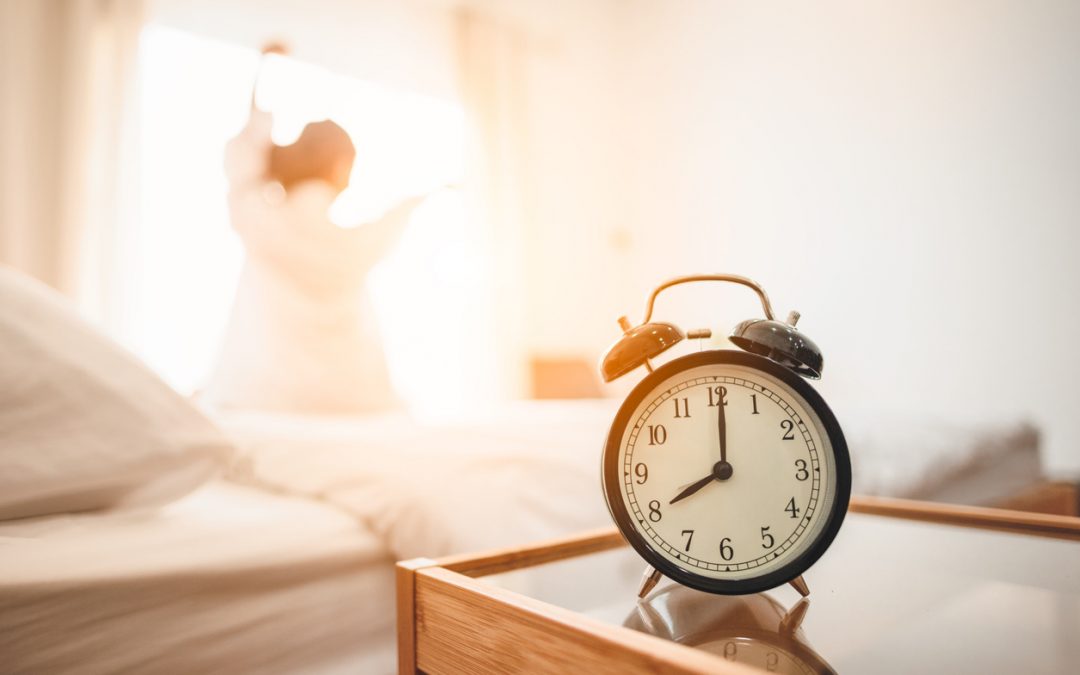What is Sleep Hygiene?
As explained by The National Sleep Foundation, good sleep hygiene means having both a bedroom environment and daily routines that promote quality, consistent sleep. If you are having trouble sleeping at night, poor sleep hygiene is likely the culprit. Take a moment to evaluate your routine. Do you frequently have surgery or caffeinated drinks in the afternoon? Are you eating late at night? Do you lay in bed and play on your phone before trying to go top sleep? Simple changes can make all the difference!
Stick to water and/or herbal tea in the afternoon, try eating dinner earlier if possible and turn off all your devices at least an hour before bed. Keeping a stable sleep schedule, making your bedroom comfortable and free of disruptions, following a relaxing pre-bed routine, and building healthy habits during the day can all contribute to ideal sleep hygiene!
Why is Good Sleep Hygiene Important?
Having good sleep hygiene not only promotes quality, consistent sleep each night, but it also promotes your overall health! The National Institute of Health and The National Sleep Foundation go into detail about how each part of your body benefits from practicing good sleep hygiene. Listed below are some highlights!
1. Heart: Cardiovascular health depends heavily on sufficient sleep. Sleep allows your heart to recover as well as regulates insulin, ghrelin, and leptin, which all work to control our metabolism and keep our heart healthy. February is American Heart Month, and if you were looking for one area of your lifestyle to focus on and start improving your heart health, quality sleep is a great choice!
2. Brain: While we sleep, our brain works on converting short-term memories to long-term memories. Getting enough sleep ensures optimal cognitive function, as well as the ability to focus and pay attention throughout the day.
3. Hormone Regulation: A healthy sleep cycle regulates your hormones and ensures cortisol levels decrease at night and growth hormone levels increase. Sleep deprivation can lead to many hormonal issues including stunted growth.
4. Immune System: Getting less than seven to eight hours of sleep a night can affect your ability to fight off illness. That is because your body needs time to recover at night and produce enough anti-inflammatory cells.
5. Skin: Quality sleep helps promote healthy aging and can even help prevent or control acne. Studies show people who do not regulatory get enough sleep had increased signs of skin aging and slower recovery from a variety of environmental stressors.
6. Weight: Sleep apnea is linked as a major cause of weight gain, and an unhealthy weight can cause sleep apnea. Therefore, living an active lifestyle that includes seven to eight hours of sleep a night, can help you avoid this vicious cycle.
7. Muscles: Sleep regulates inflammation and gives muscles time to recover, reducing risk for injuries. This is essential for anyone who is active, but especially athletes.
Overall, focusing on practicing good sleep hygiene is essential for your health and is an important component of self-care! Self-Care is also the topic of our February edition of HD HeartBeat. If you are interesting in learning more about self-care and good sleep hygiene, as well as additional health and wellness topics, you should consider signing up! Call (904) 285-2019 or visit our website!








